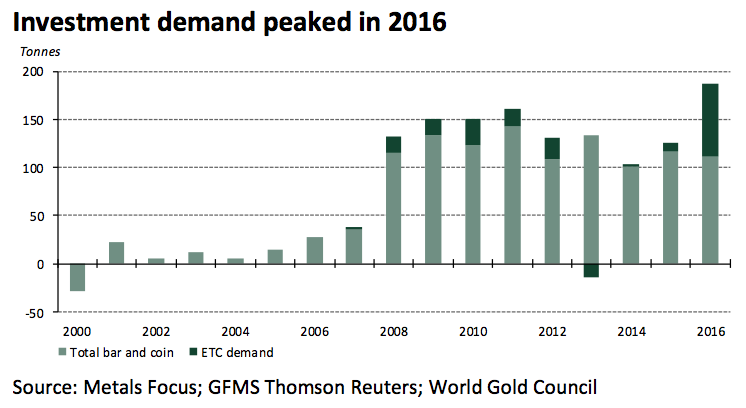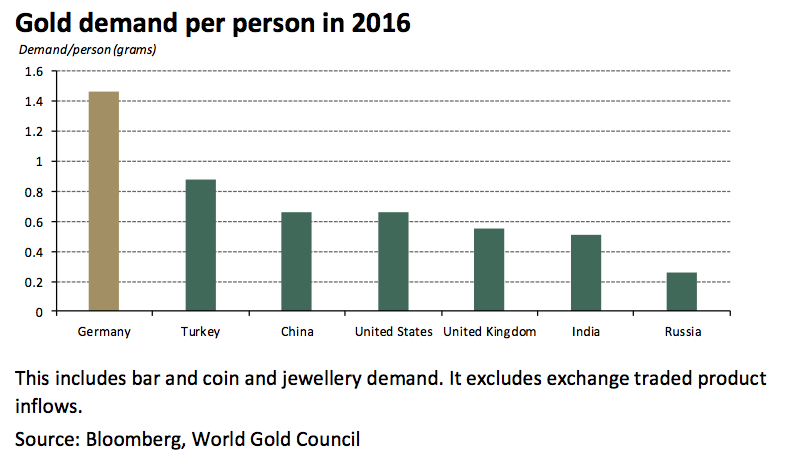Figures from the World Gold Council (WGC) reveal the country invested a record €6.8bn in gold bullion and coins as well as in exchange-traded products.

Analysts say improved availability, low prices and growing demand due to loose monetary policy, economic uncertainty and volatile geopolitical factors are the three key reasons behind the German investors’s gold rush.
Their fondness for gold is a relatively recent development and before 2008 investment in physical gold barely registered with average annual demand at 17 metrics tons.
But then the financial crisis struck and sparked a series of events that ultimately pushed many Germans into seeking a more reliable store of value.
A WGC report said: “While the world fretted about Lehman Brothers, German investors worried about the state of their own banking system.
“Landesbanks, the previously stable banking partners of corporate Germany, looked wobbly. People feared for their savings.”
Economic development in Germany has been strong over the past decade but investors have been very cautious about the risks to European financial and political systems.
And the latest surge in demand for gold in Germany is being fuelled by fears of the economic impact of Brexit and Catalonian independence efforts, high public debt worldwide, successive bail-outs of Greece, fall-out from the migrant crisis and the resurgence of nationalist politics.
When asked why they invested in gold, 57% of bar and coin investors said it was to protect their wealth and 28% said it was to make good returns in the long-term. It is clear gold fulfils an important long-term, wealth preservation role in German investors’ portfolios. So much so that the amount of gold bought by Germans per person in 2016 was greater than in either of the two gold powerhouses: India and China.

Low growth rates and productivity in some European Union regions and the lack of confidence in central banks have also contributed to the lure of gold.
The WGC report said while gold’s recent rise to popularity in Germany was sparked by financial and economic crises, it no longer needed those drivers to move forward.
It said: “Despite the dramatic growth in the past 10 years, we believe there is room for further growth.
“Though demand growth from institutional investors is uncertain, there is latent demand for gold among retail investors.
“Having made it easy for investors to buy bars and coins, retailers are also marketing them effectively.”
Original source: Express.co.uk
Reproduction, in whole or in part, is authorized as long as it includes all the text hyperlinks and a link back to the original source.
The information contained in this article is for information purposes only and does not constitute investment advice or a recommendation to buy or sell.

















